Bloat is the uncomfortable condition of being swollen or inflated, particularly in the abdominal area. Bloating can be caused by conditions such as excess water retention or gas built up in your digestive tract. There are some natural remedies for bloat that are easy to incorporate into daily routines.
There are foods that eliminate bloating and foods to avoid because they can cause bloating. There are also lifestyle changes and supplements that will help you feel less bloated. Many of these natural remedies for bloating also have other beneficial health effects.
Foods That Naturally Eliminate Bloating
1. Pumpkin
Gas is usually caused by improper food digestion. Pumpkin is helpful because it can reduce the amount of gas created. There are seven grams of fiber in a cup of pumpkin from a carton. That’s more than what you would get in two slices of whole-grain bread.
Fiber-rich foods can push stomach and intestine-clogging materials out of the body. Fiber moves food through the gastrointestinal tract quickly for better digestion and contributes to overall wellbeing. Pumpkin is also nearly 90% water. Water is necessary to soften and loosen digesting material. Pumpkin is high in potassium, which helps rid the body of excess sodium, which can contribute to bloating [1].
Pumpkin can be incorporated into a healthy diet in a number of ways. Stir a spoonful of canned, unsalted pumpkin into soup for extra flavor and a nutritional boost. Bake fresh pumpkin or add it to vegetables and spices to make instant comfort food. Add canned pumpkin to oatmeal or cereal for a nutritionally boosted breakfast. Pumpkin can be served baked, boiled, steamed or roasted.
2. Peppermint
Peppermint relaxes the muscles that allow painful digestive gas to pass. Peppermint calms the muscles of the stomach and improves the flow of bile, which the body uses to digest fats. As a result, food passes through the stomach more quickly. Enjoy peppermint tea by steeping leaves for a full 15-20 minutes. Even regular bagged mint tea might be helpful to sip in the afternoons or evenings [2]!
3. Caraway Seeds
Caraway’s use as a medicinal plant has a long history and is surrounded by many legends. Superstitions held that caraway had the power to prevent the theft of any object that contained the seed and to keep lovers from losing interest in one another.
Today, caraway is used as an effective remedy for digestive problems including heartburn, bloating, gas, and mild spasms of the stomach and intestines [3].
Caraway oil is also used to relieve constipation. A proprietary blend of caraway oil and peppermint oil is shown to be especially effective at relieving the pain and discomfort of bloat and indigestion [4].
4. Parsley
Parsley has long been used in folk medicine as a diuretic and studies have confirmed its effectiveness. Parsley belongs to the Apiaceae family along with celery and carrots. It got its name from Pedanius Dioscorides (100 A.D.). In ancient Greece, the herb was dedicated to Persephone, the daughter of Zeus and was thought to have magical powers. The Roman physician Galen (130 AD – 200 AD) prescribed it as a diuretic in the case of edema and Pedanius Dioscorides (40 – 90 AD), a Greek physician and botanist, also describes the herb as a diuretic [5].
In the 1800s and 1900s, parsley was listed in Pharmacopoeias as a laxative and as a diuretic. Originally, parsley was probably native to Southwest Asia and at least parts of the Mediterranean (Turkey, Algeria, Sardinia, and Lebanon). The herb has been cultivated since ancient times and quickly spread to most parts of Europe. Today, the plant is extensively used and cultivated all over the world. Add parsley liberally to salads and as a garnish on main dishes and side dishes.
5. Potassium-rich Foods like:
- Bananas
- Kiwis
- Oranges
- Strawberries
Potassium ensures that all cells, tissues and organs are operating properly. It can provide relief from bloating by balancing and circulating body fluids.
Having a lot of salt/sodium in our diet can cause increased bloating. When we eat potassium-rich foods, this helps our kidneys get rid of excess sodium and help reduce stomach bloating. Try eating potassium-rich foods such as bananas, kiwis, oranges, and strawberries.
6. Ginger
Ginger increases gastric motility. In other words, ginger reduces food transit time, moving it through the digestive tract quickly. When food spends less time lingering in the digestive tract, it is less likely to produce unwanted gas and bloating [6].
Fresh ginger can be grated into stir-fried dishes and added to Glowing Green Smoothie®. Ginger can also be steeped in hot water for a soothing tea. To make ginger tea, cut a few slices of clean ginger root and place in the bottom of a tea cup. Pour boiling water over the top and let steep for 10-15 minutes. Add lemon if you like.
7. Warm lemon water
Warm lemon water, especially first thing in the morning, stimulates the digestive tract and increases gut motility (add ginger for double benefit). Get into the habit of drinking one hot mug of water with the juice of half a lemon squeezed in first thing in the morning.
8. Chamomile tea
Chamomile is especially helpful in dispelling gas, soothing the stomach, and relaxing the muscles that move food through the intestines. Chamomile tea is readily available and is usually made into hot tea. The flavor is very mild and can be added to other types of hot or iced tea where a stronger flavored tea is desired while still reaping the benefits of chamomile [7].
9. Turmeric
Regular use of turmeric can decrease bloat and aid the digestive process. One study concluded that 87 percent of patients reported their symptoms to have lessened after 7 days [8].
One popular way to enjoy turmeric is making it into a sort of tea called “Golden Milk”. Turmeric is more bioavailable when cooked and in the presence of fresh ground black pepper. Black pepper contains piperine, which helps break down the curcumin (the active ingredient) in turmeric. Curcumin is fat soluble so should be consumed with some type of oil or fat to get the most benefit.
Golden Milk heats the turmeric and includes fresh black pepper and oil. Coconut oil can be added but it also included in the natural fat content of coconut milk and/or almond milk. Turmeric is a close cousin to ginger. It has a mild flavor and can be added to Glowing Green Smoothie® and sprinkled in soups and vegetable dishes. Just be sure to add a pinch of freshly ground pepper.
10. Dandelion tea
Dandelion tea is a diuretic that will also help get rid of the water your body is holding onto. It stimulates bile to help break down fatty meals that make you bloated. Try drinking one cup per day. While the entire dandelion plant is edible, the tea is usually made from the leaves [9].
11. Magnesium-rich foods like:
- Dark leafy greens
- Legumes (beans and peas)
- Nuts and seeds
- Whole grains
This crucial mineral eases constipation by relaxing the muscles in the intestinal walls. You can also find magnesium in green leafy vegetables such as spinach, legumes (beans and peas), nuts and seeds, and whole grains. Use this magnesium grocery shopping list to find magnesium-rich foods to add to your diet.
12. Fiber-rich foods like:
- Glowing Green Smoothie®
- Oatmeal
- Raspberries
- Lentils
- Artichokes
Fiber-rich foods can push stomach-clogging materials out of the body. Fiber moves food through the gastrointestinal tract quickly for better digestion.
About 25-30 grams of fiber is recommended per day, but most Americans usually get only 10-12 grams. Incorporate fiber into your diet by including foods like a daily Glowing Green Smoothie® oatmeal and other whole grains, raspberries, lentils, and artichokes into your meals. Eating a primarily plant-based diet will go a long way towards insuring your fiber needs are met- remember only plant foods contain fiber.
Foods You Should Avoid That Can Cause Bloating
1. Soda
Soda and other falsely carbonated beverages are one of the worst culprits of bloating. This includes beer, champagne, tonic water and anything with the carbonation added [10].
Carbonated soft drinks have air bubbles that travel to the stomach and release carbon dioxide within the digestive tract, creating an uncomfortable bloating sensation. (Kombucha is okay, in moderation, because the carbonation is naturally created and much milder.)
Not only do artificial carbonated drinks create an acidic metabolic state in your body, but they’re loaded with chemicals and contains HFCS (regular soda) or artificial sweeteners (diet soda) — or yeast (beer), all of which create even more bloating. Yeast and corn syrup are especially bad for bloating because they both feed unfriendly bacteria.
2. Fruit eaten with meals
Eaten alone, fruit is full of fiber and has high water content, making it a good choice for preventing bloat. Fruit also has vitamins, minerals and antioxidants, so is an excellent choice for snacking, but can cause bloating when eaten with other foods.
Fruit digests extremely quickly, much more quickly than most other foods. So when fruit is eaten after foods that digest slower, it gets held up, the nutrients aren’t absorbed as efficiently. The fruit can begin fermenting and this can result in bloating. Fruit should be eaten alone and on an empty stomach.
For more information on this and other food combining rules, please check out The Beauty Detox Solution, which lays it all out!
3. Excess salt
This one you’ve definitely heard, but it’s really important and worth repeating: avoid processed foods laden with excessive salt. Table salt is really de-natured sodium chloride salt [11].
Table salt is dead, kiln-dried, highly processed, and will also create “false fat”, making you look bloated and up to 9 pounds heavier than you truly weigh. There are many “hidden” sources of bad salt in all kinds of packaged foods, so your best bet is to avoid processed foods as much as possible.
Small amounts of high quality sea salt can be used in strict moderation, when a salty flavor is desired. This is natural salt with all the trace elements intact, and is something our bodies have adapted to eat for thousands of years.
Of course, too much of sea salt will create bloating as well, but our bodies are more naturally equipped to eliminate any excess salt in this form. Over time, as you stop eating excessively salty processed foods, you won’t find the need to add as much salt to your foods naturally, and foods will still taste flavorful.
4. Refined carbohydrates
Refined carbohydrates that are sometimes difficult for the stomach to digest- especially those that include gluten. Heavy starches such as gluten-containing bread, crackers and white pasta can cause water retention.
Any food products made from flour, especially whole-wheat flour, form gas when broken down in the large intestine. Beware of eating these types of food before bedtime to avoid feeling inflated in the morning.
5. Dairy
Lactose, or milk sugar, is difficult to digest and can cause gas and bloating in many people. If you have trouble digesting milk or dairy products like ice cream and cheese, your body may not be making enough of the enzyme lactase, which is needed to break down the lactose in dairy foods [12].
6. Artificial sweeteners
Artificial sweeteners are frequently found in many reduced-calorie foods, processed products, and diet or decaffeinated drinks. They contain chemical compounds called sucralose, aspartame, and cyclamate that the digestive tract cannot break down easily.
Sweeteners, which can be up to 300 times sweeter than natural sugar, are known to increase appetite and result in overeating. Be on the lookout for artificial sweeteners, and when possible, steer clear of them.
7. Fat
Reduce fat intake. Limiting high-fat foods can help reduce gas and bloating. Cut back on fat in your diet to help your stomach empty faster. This will allow gases to move more quickly into your small intestine.
“Fat slows the functioning of your intestines, so if you don’t process gas very well, fatty foods could make that worse,” says Lena Palmer, MD, a gastroenterologist, assistant professor in the department of medicine, and medical director of nutritional services at Loyola University Chicago.
Excessive meat, or processed foods with unnatural ingredients will also slow down your digestion quite a bit and set the stage for fermentation, putrefaction and bloating.
Lifestyle Changes You Can Make to Combat Bloating
1. Eat clean
Clean up your diet – avoid processed foods and eat more “clean food” sans additives, artificial sweeteners, and toxic chemicals that can interfere with digestion.
2. Exercise
Jump starting your physical activity can also give your digestive system a boost. Rigorous cardiovascular exercise, such as running or aerobics, activates the sweat glands that release fluids that the body could be retaining.
Even just a 15-20 minute stroll around the neighborhood after dinner can help with digestion. Additionally, a workout is a huge stress-reliever; exercise can ease day-to-day pressures and prevent stress-eating.
A 2006 study on bloating published in The American Journal of Gastroenterology found that physical activity helped participants move gas and ease their symptoms.
3. Drink water
Water helps flush food and impurities through the digestive system. It’s best not to chug water with meals because that can wash nutrients out before they are utilized. Too much water with meals can dilute the digestive enzymes your body needs for the effective digestion of proteins, carbohydrates, and fats.
With meals, it’s best to sip on room temperature water or hot tea. It’s best to hydrate between meals – at least 30 minutes before and wait at least 45 minutes after eating to start drinking large amounts of liquids.
4. Chew food thoroughly
Food that is well chewed is easier to digest than large chunks of food. It is important to take proper time to enjoy mealtime. Don’t rush through a meal, gobbling the food. This sets you up for indigestion and bloat!
5. Follow basic food combining rules for ease of digestion
Food combining is so important for proper digestion. Pairing the wrong foods together can be a recipe for discomfort and regret. The Beauty Detox Solution is an excellent resource for knowing which foods to eat together and which foods to avoid eating together. This handy “Cheat Sheet” can get you started on the right track.
6. Reduce stress
Stress can have a very strong impact on your digestion, and therefore the level of bloating you experience. Look at this quote from Harvard’s Health Site [13]:
Multiple factors — biological, psychological, and social — contribute to the development of a functional gastrointestinal disorder. Numerous studies have suggested that stress may be particularly important, however. The relationship between environmental or psychological stress and gastrointestinal distress is complex and bidirectional: stress can trigger and worsen gastrointestinal pain and other symptoms, and vice versa. This is why psychological therapies are often used in combination with other treatments — or even on their own — to treat functional gastrointestinal disorders.
Eating in a state of fear or distress can result in the stomach feeling unsettled or upset. This can lead to indigestion and bloat.
Supplements That Prevent and Cure Bloating
1. Soil-based probiotics (SBOs)
Probiotics are the building blocks of a healthy digestive system. Probiotics are made up of “good” living bacteria similar to those that naturally exist in the body and aid with digestive health [14].
Probiotics regulate the amount of healthy bacteria in your system and normalize bowel movements. Soil-based probiotics (SBOs) have been found to be vastly more effective than other types of probiotics for digestive health.
Proper bacterial balance provided by soil-based microorganisms (SBOs) is vital to healthy immune function, providing appropriate protection against potential infections and playing a critical role in the digestion and absorption of food and nutrients. The interaction of multiple strains of soil-based bacteria (SBOs) is an essential element in health and wellbeing.
2. Detoxy+
Constipation is one of the top reasons for chronic, long-term bloating.
Detoxy+ is a powerful, magnesium-based non-laxative internal cleanser that helps remove unwanted waste and increase detoxification in your colon.
It is not a harsh laxative, and not habit-forming, so you don’t have to worry about taking it and somehow creating dependence on it–it can be used on an ongoing basis as part of an enhanced detoxification regime. It is also 100% vegan, gluten-free and non-toxic.
Here are some of the many benefits:
- Enhances detoxification – by removing toxins attached to old, stagnant waste inside you
- Easier elimination – it helps gently stimulate bowel movements
- Increased breakdown of waste – the oxygen breaks up debris inside your colon and intestinal tract
- Oxygenates body – the oxygen release during the process can reach your bloodstream and body
- Greater regularity – it’s non-habit forming, by helping you clean out, you become more regular!
- Decreases bloating – much of the bloating we experience is due to trapped waste and toxins, which this removes
- Increases alkalinity, reduces acidity – much of the old waste inside our colon is what creates acidity and disturbs our pH balance
- Reduces gassiness – by helping remove stagnation and unfriendly bacteria, yeast, parasites and more — gas is also reduced
- Helps regularity during travel – can help your body adjust to new time zones and regions without becoming irregular
Given that old, stagnant waste plays a big part in bloating, Detoxy+ is a very potent way to eliminate gas and reduce bloat.
In love and health,
Kimberly
[1] IMPACT OF FOOD ENRICHED WITH DIETARY FIBER ON PATIENTS WITH CONSTIPATION PREDOMINANT IRRITABLE BOWEL SYNDROME.[2] Peppermint
[3] Picture of the Intestines
[4] A randomized placebo-controlled trial on the effects of Menthacarin, a proprietary peppermint- and caraway-oil-preparation, on symptoms and quality of life in patients with functional dyspepsia.
[5] Diuretic effect and mechanism of action of parsley.
[6] Reversal of pyrogallol-induced delay in gastric emptying in rats by ginger (Zingiber officinale).
[7] Chamomile: A herbal medicine of the past with bright future
[8] Efficacy of turmeric in the treatment of digestive disorders: a systematic review and meta-analysis protocol
[9] The diuretic effect in human subjects of an extract of Taraxacum officinale folium over a single day.
[10] Pathophysiology, Evaluation, and Treatment of Bloating
[11] Health Risks and Disease Related to Salt and Sodium
[12] The Origins of Lactase Persistence in Europe
[13] Stress and the sensitive gut
[14] Effectiveness of probiotics in irritable bowel syndrome: Updated systematic review with meta-analysis.

Lots of love, Beauty! xo

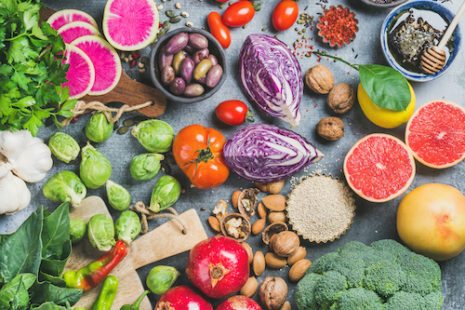
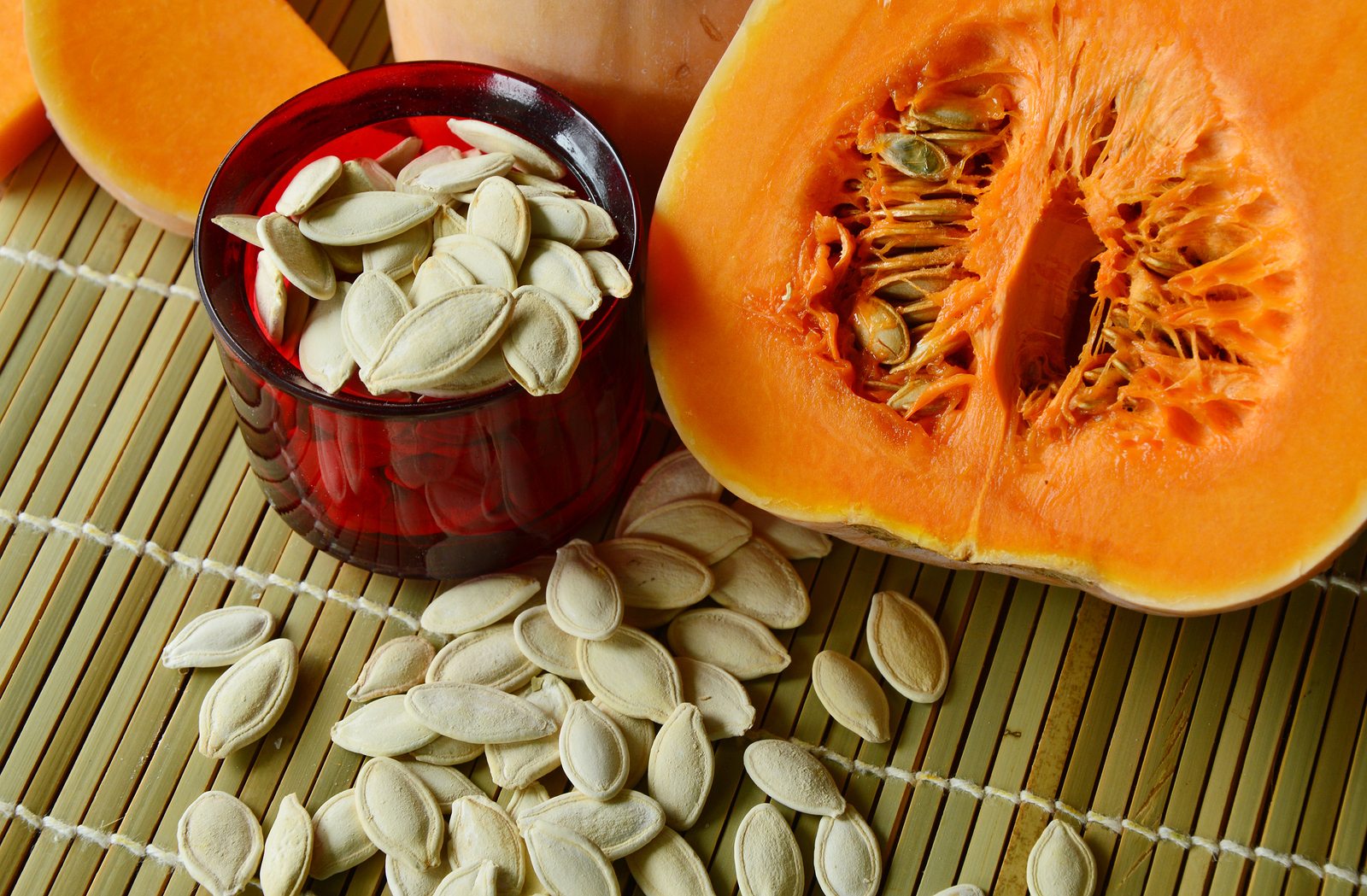
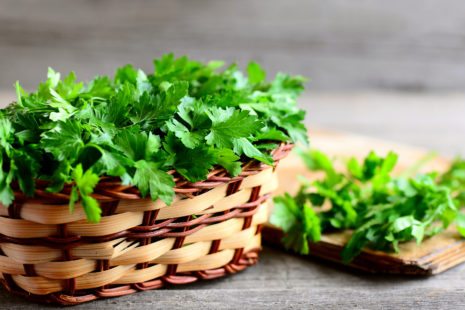
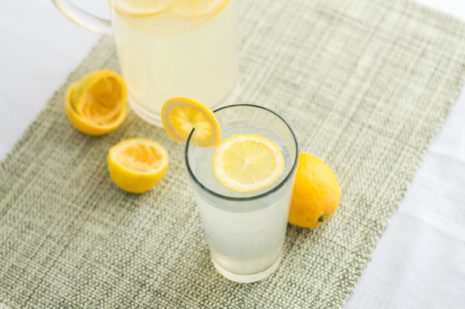
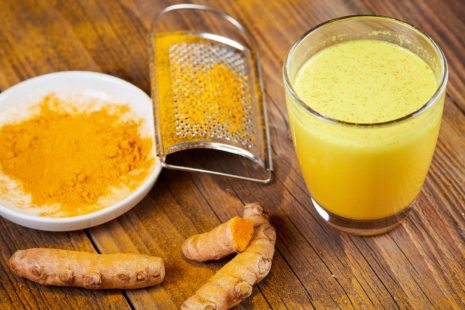

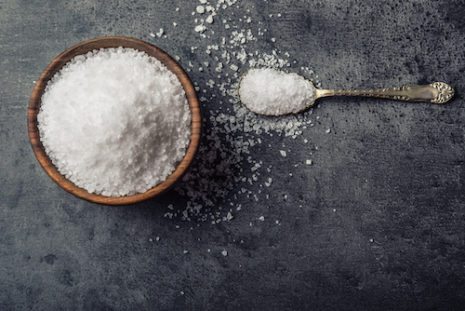
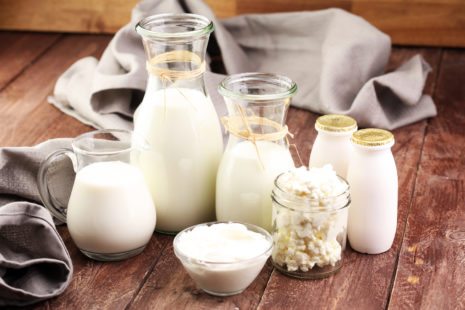

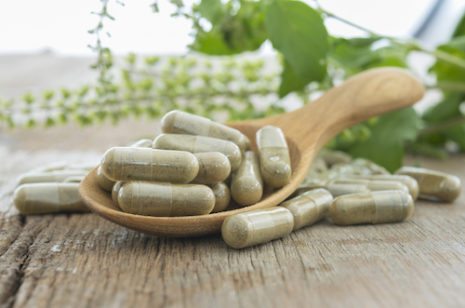

Extremely useful list! Thank you! I will have it printed and carry with me!